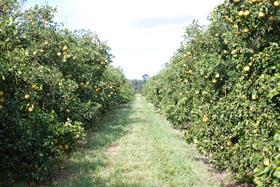
The US House of Representatives overwhelmingly passed a measure on Wednesday that provides growers with an incentive to plant more trees and bolster the ailing Florida citrus industry.
By a 400-20 vote, Republicans and Democrats approved the Emergency Citrus Disease Response Act which allows growers to immediately expense the cost of planting new citrus instead of the standard 14-year depreciation period under the current IRS rules.
The tweak to the IRS code, designed to increase slumping production, would be available for 10 years.
“Through this legislation small, medium and large growers will have the opportunity to seek capital from lenders and outside investors to reinvest in Florida citrus,” said Michael W. Sparks, executive vice president and CEO of Florida Citrus Mutual (FCM).
“We believe the tax incentive will help yield a positive return on an investment in citrus. We need to attract capital to rebound from HLB and this measure is an important tool to get us there.”
FCM estimates the Florida citrus industry needs to plant more than 20m trees over the next 10 years to support existing infrastructure and get production back to where it was before HLB.
The bacterial disease, also known as citrus greening, attacks the vascular system of a tree and can kill it within two years. It is endemic to Florida and has reduced production more than 50 per cent over the past decade.
The Florida citrus industry creates a US$10.7bn annual economic impact, employing nearly 62,000 people, and covering about 200,000ha.



